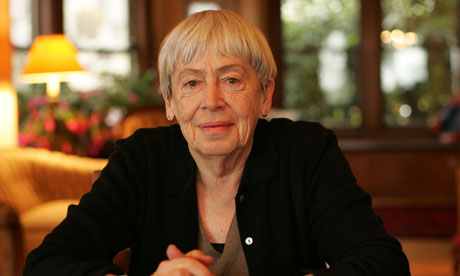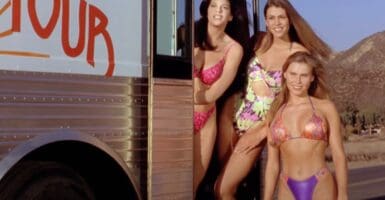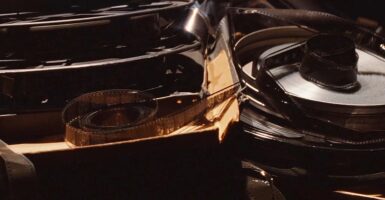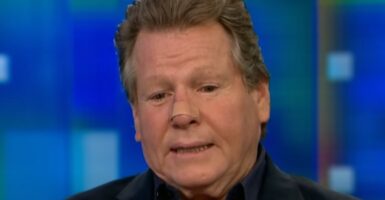Watch Ursula’s Le Guin’s Amazing National Book Foundation Awards Speech
This article is more than 2 years old
 Ursula Le Guin is one of my heroes. In a genre dominated by men (though less and less so, fortunately), she’s been a consistent and brilliant force in fantasy and science fiction, picking up a slew of awards, including Hugos (2) and Nebulas (4), and, most recently, the National Book Foundation’s Medal for Distinguished Contribution to American Letters. Her six-minute-long speech perfectly exemplifies why she deserves such an honor, as well as the considerable wisdom she has to offer both inside and out of her fictional realms.
Ursula Le Guin is one of my heroes. In a genre dominated by men (though less and less so, fortunately), she’s been a consistent and brilliant force in fantasy and science fiction, picking up a slew of awards, including Hugos (2) and Nebulas (4), and, most recently, the National Book Foundation’s Medal for Distinguished Contribution to American Letters. Her six-minute-long speech perfectly exemplifies why she deserves such an honor, as well as the considerable wisdom she has to offer both inside and out of her fictional realms.
Le Guin is one of those writers who is every bit as amazing in real life as one would expect her to be from reading her works. She submitted her first sci-fi story to Astounding Science Fiction when she was 11. When I was 11, I wrote a short story about a girl who lost her stuffed pig on a piece of construction paper. Her first writing focused largely on imaginary countries, which explains a lot, including the map on her website.
Unsurprisingly, she’s a huge Tolkien fan and she also went to high school with Philip K. Dick, although sadly, they weren’t friends (though I do think an Ursula Le Guin android would be amazing). She’s also made a habit of using her fame to talk about important issues. She actually refused to accept a Nebula award because of the Science Fiction Writers of America revoked Polish novelist Stanislaw Lem’s honorary membership. She felt as though the move was a product of Cold War hype and discrimination. Similarly, she resigned from the U.S. Authors Guild when it announced its support of Google’s digitization of books. “You decided to deal with the devil, as it were, and have presented your arguments for doing so. I wish I could accept them. I can’t,” Le Guin said.
Le Guin used her recent lifetime achievement award to speak out against similar market practices:
Right now, I think we need writers who know the difference between the production of a market commodity and the practice of an art. Developing written material to suit sales strategies in order to maximize corporate profit and advertising revenue is not quite the same thing as responsible book publishing or authorship.
She even called her own publishers for being in a “silly panic of ignorance and greed, charging public libraries for an ebook six or seven times more than they charge customers,” and she berated Amazon for its dispute with publisher Hachette, arguing against “letting commodity profiteers sell us like deodorant, and tell us what to publish and what to write.”
She urges writers and artists — and humans in general — to resist what seems like the “inescapable” power of capitalism. “Resistance and change often begin in art,” she says. She argues for freedom over profit, and hopes that, at the end of her writing career, she doesn’t have to watch American literature get sold down the river. Creating art for art’s sake, rather than for money, is one of her charges. The other is hope, especially in light of “our fear-stricken society and its obsessive technologies.” Much as the writers of Project Hieroglyph assert, writers are the ones who can deliver that hope, and, according to Le Guin, can “remember freedom.”
There’s no way analysis and quotes can even begin to do her justice. Watch it for yourself — I bet you won’t be able to keep yourself from cheering.












